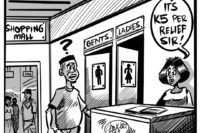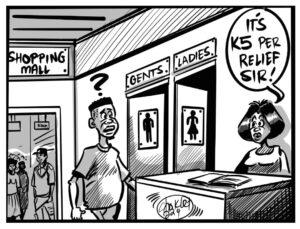Immigration Department Director General Moola Milomo says the department does not need anybody to pour hot air on their necks for them to perform their duties.
And Milomo says the Immigration Department does not have the capacity to stop all illegal immigrants.
Speaking when he featured on ZNBC’s Sunday interview, Milomo said it was not unusual to deny certain people entry into the country, disclosing that the department had refused entry to 426 people in the first quarter of 2017 and 1, 600 people were also refused entry in 2016 alone.
“I share the same sentiments with my superiors over those issues. When you are a gate keeper, you want to know who is coming into the country and you have to know who is coming. So naturally, you ask for the identity, what the person is coming to do, and if the minimum requirements are not met, I have already given you the figures of the people who were denied entry, so there is nothing unusual about it. But in short I can say I will not comment on that one,” Milomo said.
Asked if his department was not targeting one individual, Milomo said; “Not at all, that is why I have given you the figures the people who were denied entry in the first quarter. We do not target individuals, what for? If you look at the Immigration Act, it does not mention somebody’s name, it is a general principle, general guidance. There is no way you can point at an individual that the legislation was made for that person, no.”
“We have 46 boarders and right now as I am talking people are listening. Then who is that person who gives us instructions to say allow that one, stop that one? It is not feasible. The immigration officer is trained to know who should come into the country and who should not come. We don’t need anybody to breathe hot air on our necks, to tell us who should come in. It does not work like that and it has never happened.”
And Milomo said it was impossible to completely stop illegal immigrants because the department was understaffed.
“We cannot completely get rid of illegal immigrants, we can only minimize. Because we are not the only one facing such a situation. If you look at Zambia, we are a destination. There is no country which is free from illegal immigrants, even developed countries,” Milomo said.
“We make a contribution towards the internal security, the country has to be stable, we have to examine people that are coming in the country. Inadequacies have always been there in a number of institutions, I am saying so because we have 46 boarder controls and when you look at the human capacity in terms of the number of officers we have, we are quiet few, but that is being attended to. We are duty bound to ensure that whoever comes into the country is properly examined.”
Meanwhile Milomo revealed that the department had phased out the physical application for VISAs for those intending to come into Zambia and replaced the system with an online application system.
“Our VISA now is provided for online, those who intend to come to Zambia don’t need to come to our offices to pick up an application, fill it in and leave it there, and wait for the VISA application to be considered no! As long as they have got Internet, they can apply for their visa on the comfort of their homes online. And then the VISA will be considered for within 2, 3, 4 days, and then they jump on the plane, come to Zambia. So we are trying to simplify the process to make it easy, effective, and more efficient,” he added.
He further revealed that his department was also working on a project to allow VISA applicants pay for VISAs online.
“Right now, we are working on a project so that apart from applying for a visa online, we want the visas to be paid for online as well because if one comes with a visa which has already been paid for, instead of us taking 2, 3 minutes to examine that person at the boarder or at the airport, I think time will be reduced by 50 percent. The world today, we do have bilateral and regional arrangements, much that even when it comes to these issues, we have a joint approach, we exchange information. We may not be able to capture everybody but we have the information. That is why we are able once in a while to refuse entry to people, those we know are appearing in that list, Just the quarter of this year, we have refused entry to 426, Last year alone 1, 600 people,” said Milomo.













One Response
Why is this immigration department so sleepy in Solwezi or is it a case of corruption. Foreigners are on temporal employment permits for more than 5years holding to employment where alot of Zambians are qualified just because they are willing to work without union representation and in other incidents are paid disproportionately huge salaries when they do not even have any trade skills.